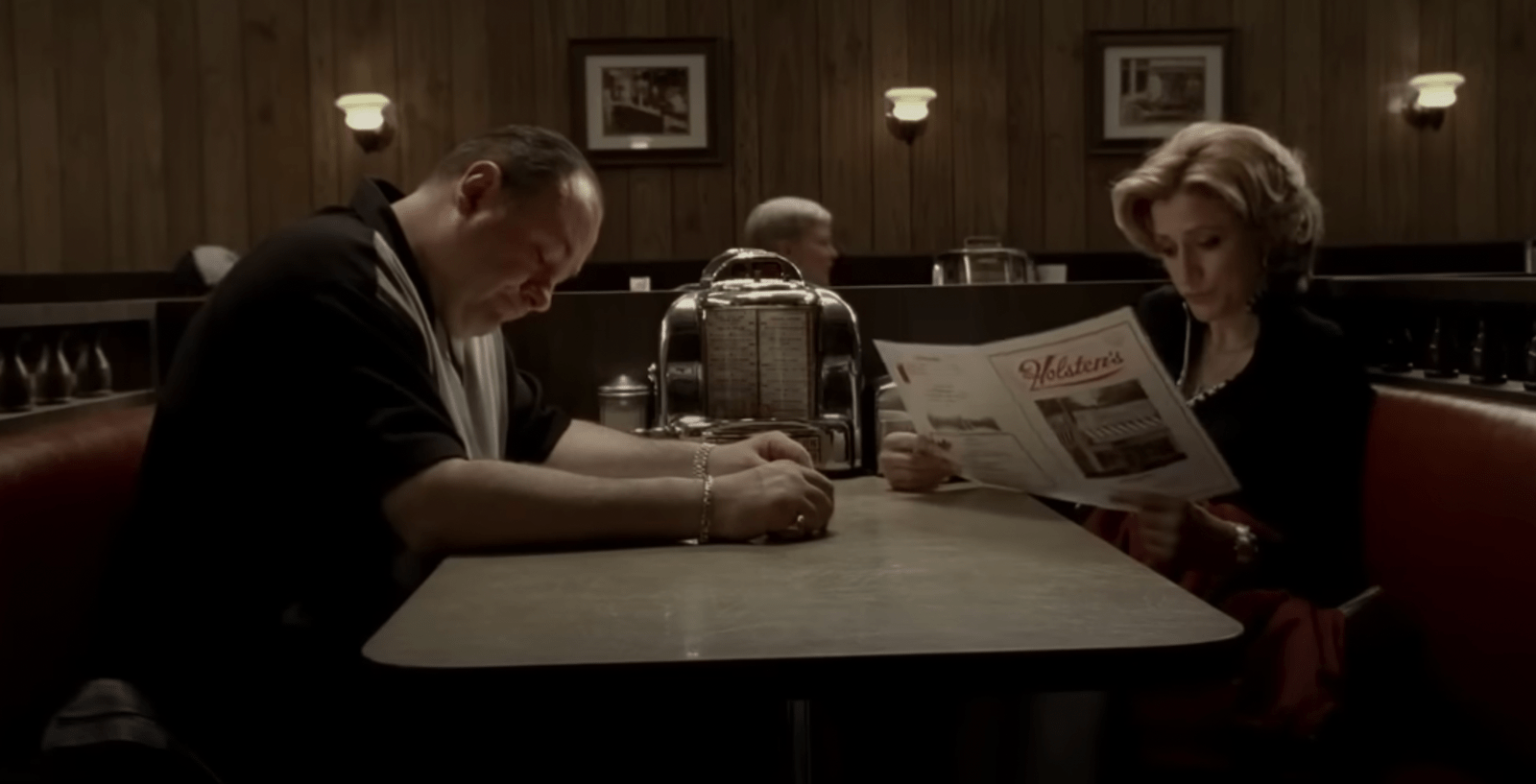The end is arbitrary. I don’t mean, like, existentially, I just mean generally. Endings are usually unpredictable, which is kind of a truism, but bear with me. As a writer, I have noticed endings announce themselves whether I want them to or not. It’s usually some subconscious pull towards finality, an understanding that the writing is pointing to everything wrapping up, though sometimes something equally unconscious is nagging at you to keep it going when you shouldn’t (like right now). That’s when an editor helps (Tom?). You might be loath to end something you’ve enjoyed working on, or rush to end something you haven’t. All that to say, the impulse to end a piece of “creative” work (something that doesn’t have clear boundaries like, say, a math problem) is ultimately internal, but there are still so many external factors that compete to determine its conclusion.
Unsurprisingly, a major external force is money. Why wouldn’t it be? The value of everything produced in a capitalist society is in some way or another derived from its earning power. Popular culture was always more aligned to finances than fine art anyway, just because of its aim in reaching a wider public and its association with corporate interests—the bigger the audience, the bigger the payoff. And if a piece of popular culture is popular enough—and sometimes that means trading in monetary value for cultural value—the idea of an ending becomes counter intuitive; it’s like asking the bank to stop giving out money.
Online, attention and money have become sort of equivalent (don’t worry, we’re nearly there). As much as popular culture is evaluated by how much money it makes, it is also evaluated by how long it can keep someone engaged watching (which, yes, also determines how much money it makes). In this context, in the case of television, the impulse is always towards making a bingeable show, not just by programming an app to automatically queue up each subsequent episode, but by actually constructing a show which trickles, which always has forward momentum, and which takes ages to finish. It’s a television formula which has historically worked. Before Prestige TV, TV was just TV. It was something measured in episodes (like The Simpsons, for example) rather than season-long story arcs. That was, until "The Judgment"—the two-part season finale of The Fugitive—in 1967.
By that point, the ABC crime drama was in its fourth season. Accused wife-murderer Richard Kimble was still running after the one-armed man (and real killer) to clear his own name. ABC ended the show with an episode like any other, with Kimble hiding in the mountains with the law on his heels. Resolutions weren’t really a consideration then—this wasn’t a book, it was television. You could pull the plug and not tell anyone; it’s just the way things had always been done. But after that last episode aired, ABC’s VP of programming was like, Wait, isn’t it kind of awful just to drop all those people who have been loyally following this story for several years? Leonard Goldberg took it to the higher-ups. Some of them were worried a proper ending would hurt syndication, others thought people wouldn’t mind because they knew how television worked. “But they are deeply invested,” Goldberg told the execs. “This is our business; we are selling advertisers on the power of television, and yet we ourselves don’t believe it?”
Fine, they said. As long as the August finale was sold to advertisers at the higher fall rate. So, Goldberg did what he was told, and it paid off: The Fugitive finale attracted three-quarters (!!!) of the American television audience at the time. Without "The Judgment," the (to this day) divisive finale of Lost might have never happened, not to mention the two-part Mad Men ending, nor even the two-part entire final seasons of Breaking Bad and The Sopranos. People have gotten so comfortable with series finale fanfare that they now expect it, even from more episodic series. It’s partly why a streaming service like Netflix going on a rampage and canceling popular shows with no warning has been met with not just skepticism, but downright vitriol (and even canceled subscriptions). “We have never canceled a successful show,” was Netflix CEO Ted Sarandos's response in January. “A lot of these shows were well-intended but talk to a very small audience on a very big budget. The key to it is you have to be able to talk to a small audience on a small budget and a large audience at a large budget. If you do that well, you can do that forever.”
All of this of course depends on your definition of a successful show. I would call a show like Stranger Things not much of a success because, creatively speaking, it’s kind of bad (see derivative). But I imagine Netflix, which has kept it going WAY TOO LONG (it’s finally ending going into Season 5, but it feels like Season 85), sees it as a success because it’s got a large audience (it’s apparently one of the streamer’s most-watched shows) for its large budget (reportedly $30 million per episode). Sarandos’s "forever" comment in this context almost reads as a threat. Making anything under conditions in which money is the bellwether means the artist is no longer entirely in control, capital is. Lucrative filmmakers in this situation are never told no, even when they probably should be, and are easily convinced to continue even when the end is announcing itself in their guts. This is why Jesse Armstrong taking full control of the ending of his near-deified HBO show Succession is such a big deal.
Succession, which returns March 26, is the kind of show where you could see the ending coming as soon as it started. It seemed too hard to sustain something of that caliber (not to mention price, though at an estimated $90 million per season, its budget is a third of Stranger Things) for an extended period of time—like a ballerina doing an endless pirouette. Maybe that’s also because, all along, that was creator Jesse Armstrong’s thought, too: “You know, there’s a promise in the title of Succession. I’ve never thought this could go on forever. The end has always been kind of present in my mind.”
Part of what makes this show so good is its restraint. It’s a constantly simmering Le Creuset which boils over once in a while, but never leaves the stove. It’s this control which made Armstrong book an interview with The New Yorker a month before Succession’s fourth season premiere to announce, before anyone could even bring it up, that this would be the show’s final season. Nor was this finale some last-minute choice. At the end of 2021, Armstrong—apparently a great manager as well as writer—lead a calm discussion with his writers’ room about how things should conclude. "And we played out various scenarios: We could do a couple of short seasons, or two more seasons. Or we could go on for ages and turn the show into something rather different, and be a more rangy, freewheeling kind of fun show, where there would be good weeks and bad weeks," he said. "Or we could do something a bit more muscular and complete, and go out sort of strong. And that was definitely always my preference."
While HBO has its own issues around abrupt cancellations, the network is also known for being artist-friendly and gave Armstrong the space to make up his own mind. "HBO has been generous and would probably have done more seasons, and they have been nice about saying, 'It’s your decision,'" Armstrong said. "That’s nice, but it’s also a responsibility in the end—it feels quite perverse to stop doing it."
You can’t exactly tell whether he feels it’s perverse because of how successful the show has been, but it makes sense that that would cause tension with what the show really needs. What’s positive about Succession’s departure is that its team wasn’t pressured to keep going for the sake of a big payday. The same goes for Jason Sudeikis, whose incredibly popular series Ted Lasso on Apple TV+ (also known for being creatively aligned), which premiered its third season on March 15, also seems to be going out on top. With the kind of satisfaction that money can’t buy, he told Deadline: "This is the end of this story that we wanted to tell, that we were hoping to tell, that we loved to tell."






